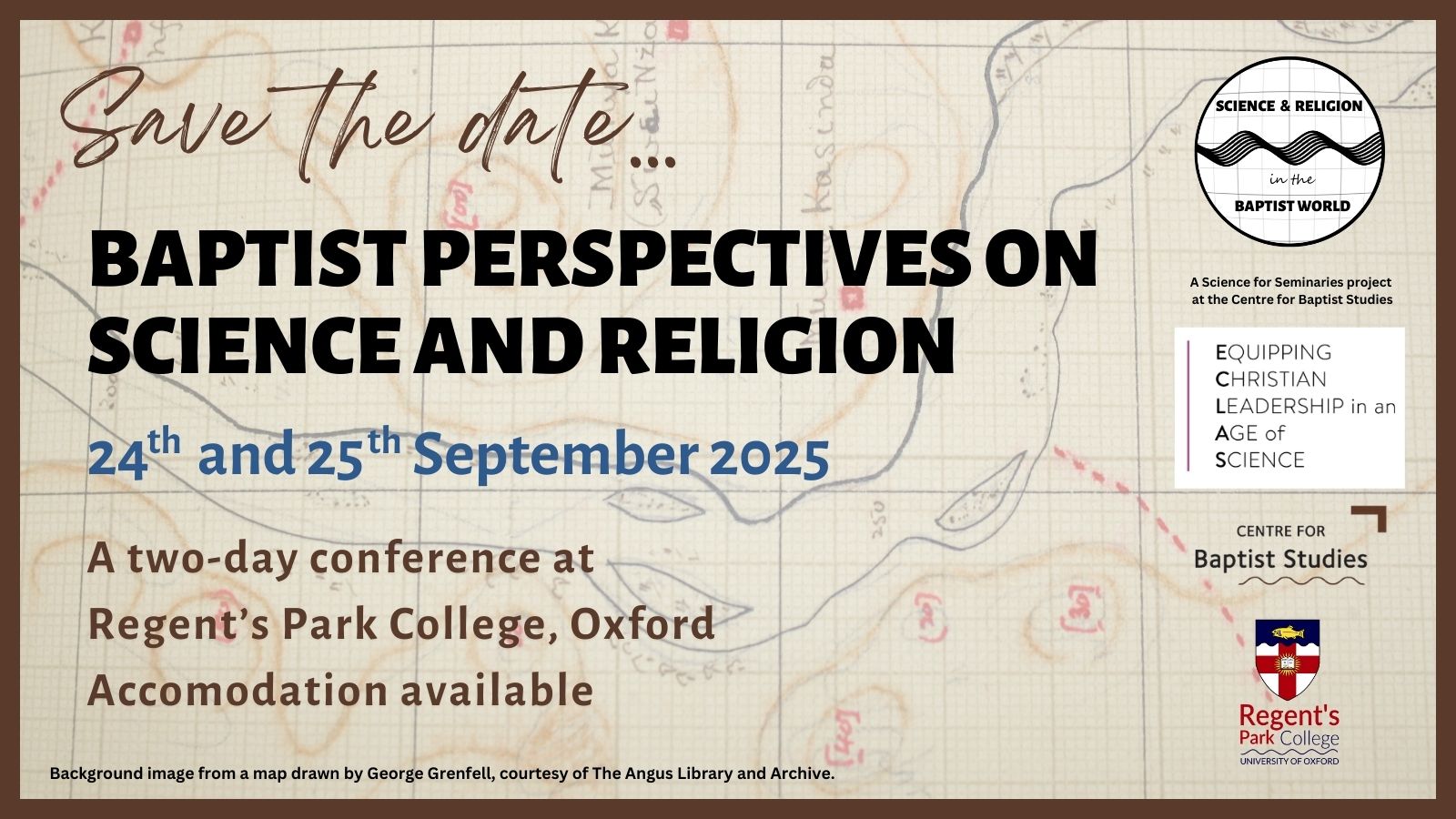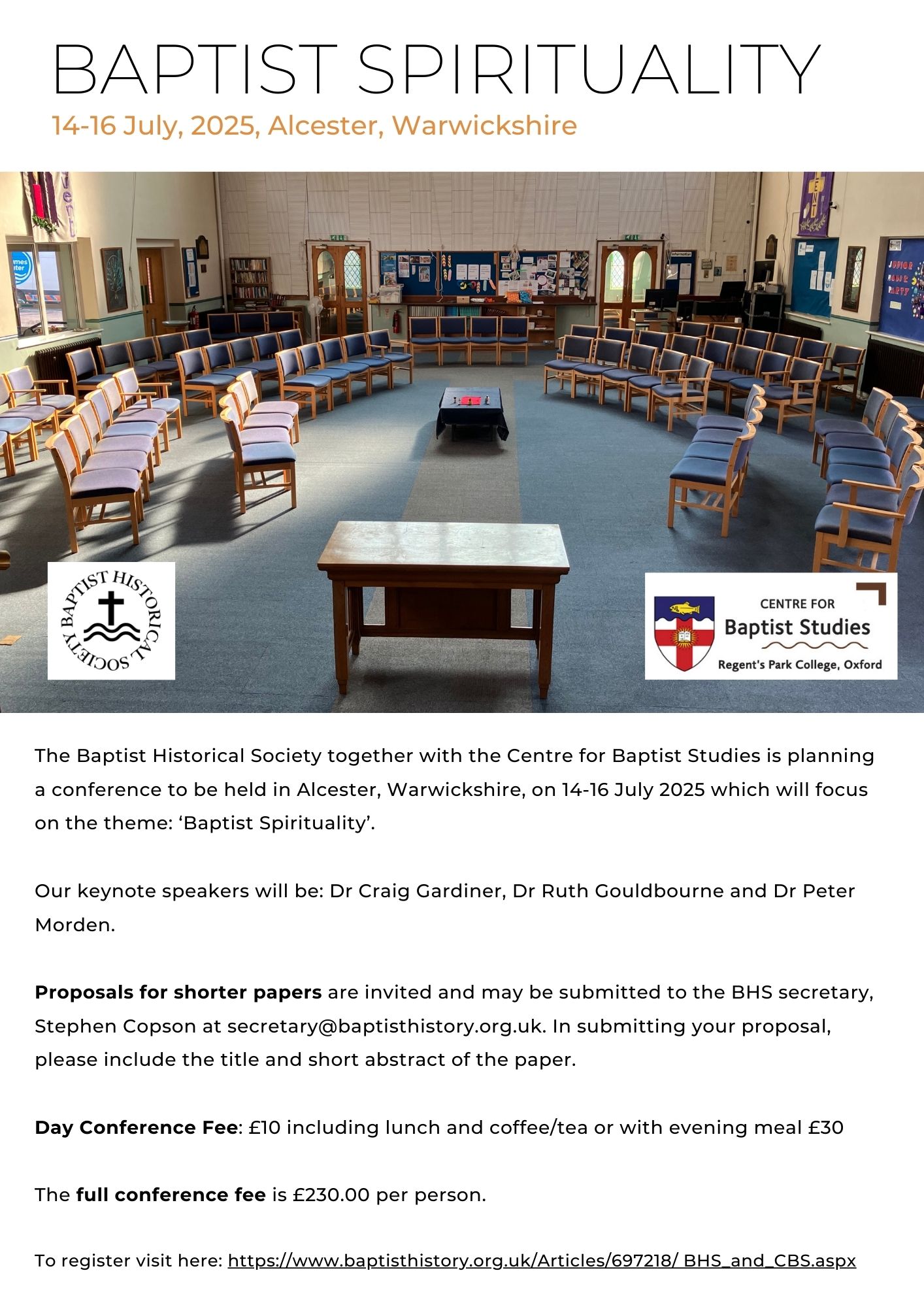The Centre for Baptist Studies hosts two conferences per year in Spring and Autumn, as well as organising other events to foster academic exchange
- A previous Events Archive is here.
- The Angus Library ‘Opening the Angus Library’ Seminars are here
- The 2024 Reading Group is here
- View our latest Newsletter here
Upcoming Events
Click the titles link to find out more.
Visit the Events Archive to view videos from completed events.
-
24 & 25 September 2025 - Baptist Perspectives on Science and Religion
-
14-16 July 2025 - Baptist Expressions of Christian Spirituality
Baptist Expressions of Christian Spirituality

